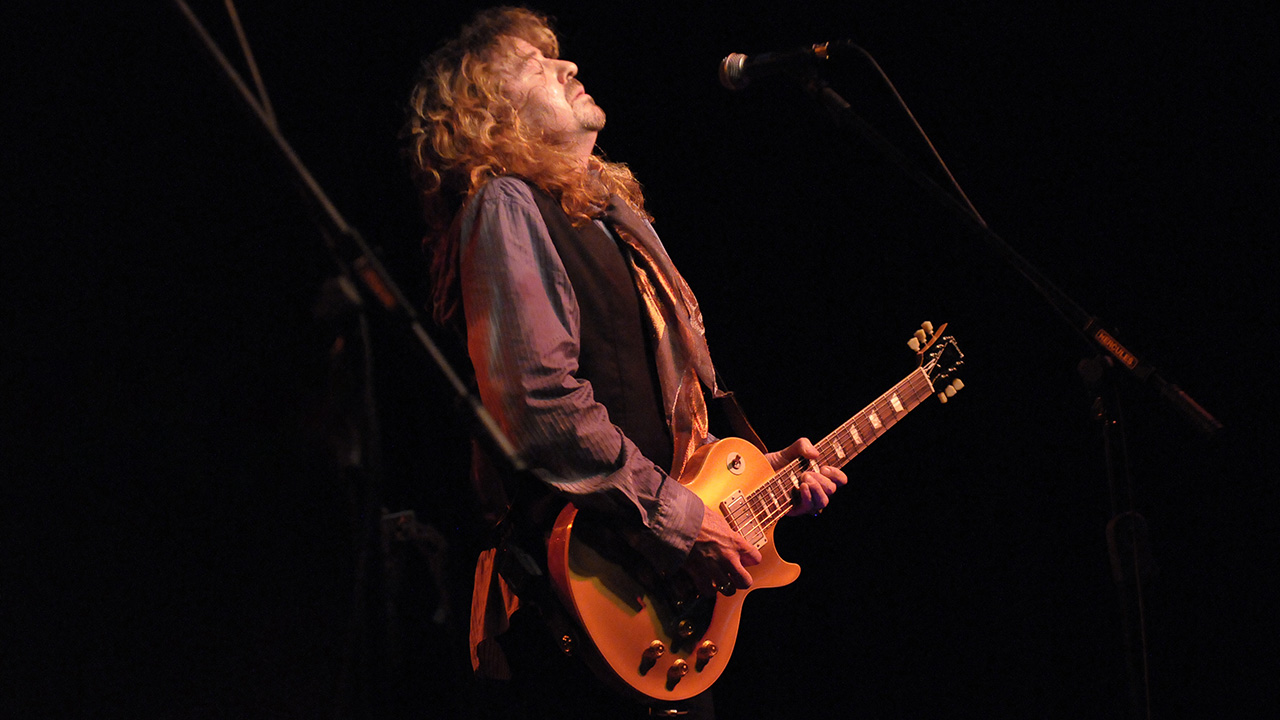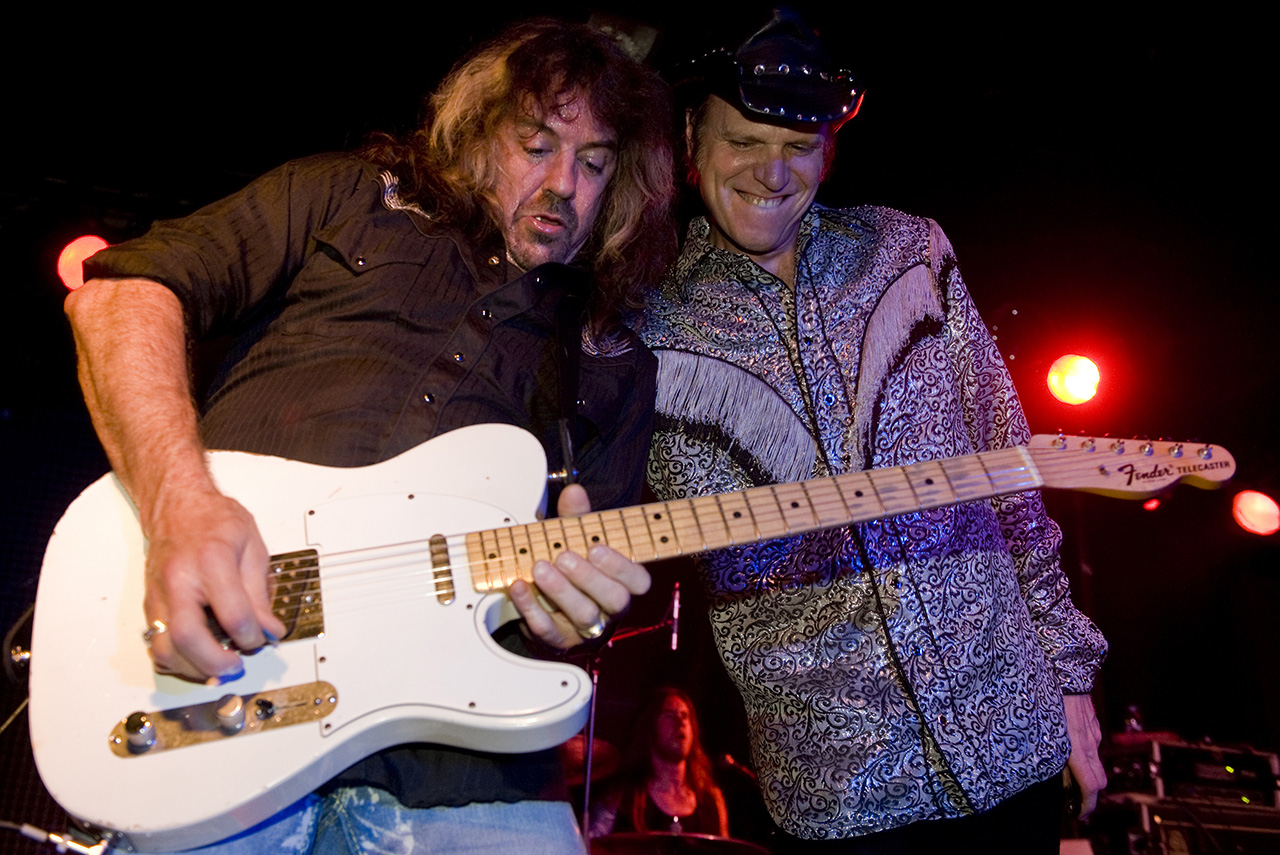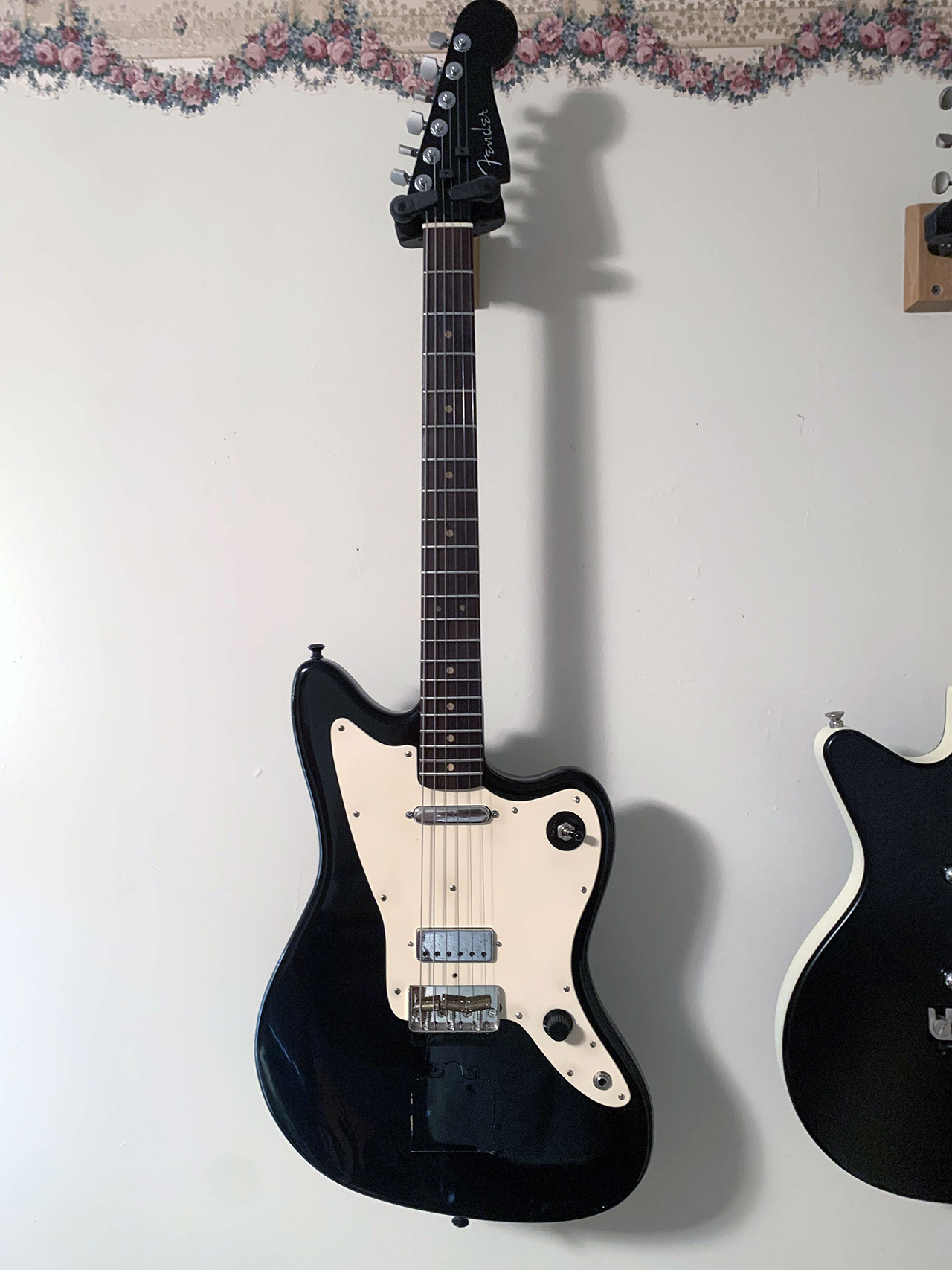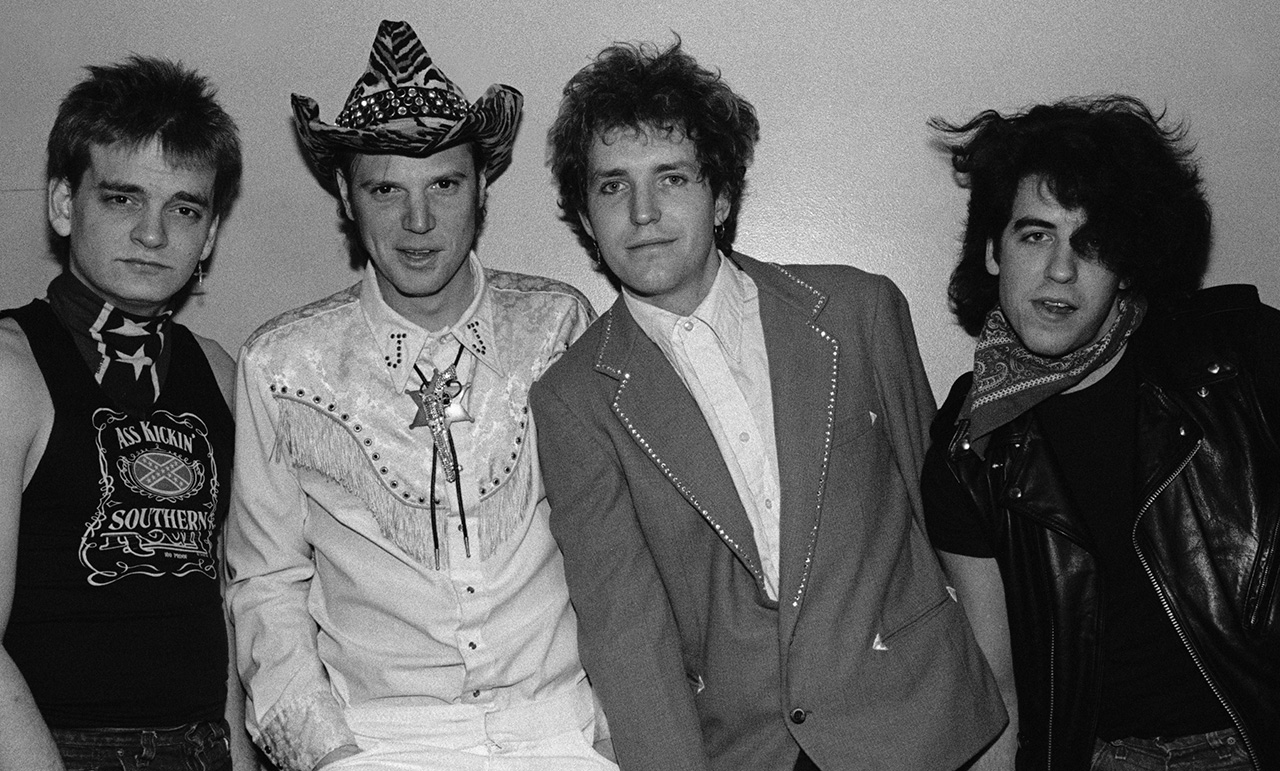“Bob Dylan asked me almost every day: ‘Hey, when are you going to sell me that ’64 Jazzmaster?’” Jason & the Scorchers’ Warner E. Hodges toured with Dylan, borrowed the Ramones’ gear – and played a Tele that survived a tractor
The cowpunk pioneer on the many guitar casualties of his slinging and spinning on stage, why switching from Fender to Gibson was “like learning another language”, touring with the Ramones and R.E.M. and making a Dylan song their own

Warner E. Hodges of Jason & the Scorchers is perhaps the most energetic country rock guitarist of all time. Slinging his Telecaster on its strap 360 degrees over his thigh, spinning in circles, soloing with a cigarette up his nose – while his hat stays on his head and no note is missed – is definitely cowpunk.
Born to country musician parents, he joined the band formerly known as Jason & the Nashville Scorchers in 1981, alongside equally energetic lead singer Jason Ringenberg. Over the decades they’ve been given many wacky genres, but their roots stem from punk rock and country.
“The musical influences from the four guys was a pretty amazing thing,” Hodges says. “Everyone brought their quarter but the four quarters added up to way more than a dollar. We were listening to Hank Williams and George Jones; and also the Ramones, AC/DC and the Sex Pistols. Jason was listening to Neil Young and Bob Dylan. The drummer, Perry Baggs, was listening to Van Halen.”
The Scorchers built a hefty reputation for their wild stage presence. “It was four dudes that all fronted a band before themselves,” Hodges explains. “Everyone had been the guy – nobody was gonna get outshone. You didn’t know where to look or who to watch.”
Were there ever any onstage mishaps with the Scorchers?
“Oh, yeah! It’s an expensive mistake with a Les Paul if you lose it! And that’s happened a few times… I’ve torn up 15 or 20 nice guitars. I would literally put two Telecasters in a gig bag and check it. People would say, ‘Aren’t you worried about them?’ I’d say: ‘They aren’t going to do anything to each other that I wouldn’t do.’
“I had a Sunburst Anniversary Tele that I did the forward throw with in Norway – and I felt the strap go. I was like, ‘Okay, it’s gone.’ I watched it sail out into the dark. I got it back after the show; it went 16 rows deep and it still worked!
Get The Pick Newsletter
All the latest guitar news, interviews, lessons, reviews, deals and more, direct to your inbox!
“That same guitar got run over by an airplane tractor. It destroyed the case but didn’t do anything to the guitar. I played it the next night! You can’t do that with a Les Paul. That Tele’s probably the toughest guitar I own.”
When did you first feel an emotional connection to the guitar?
“I started noodling when I was 14. The first time I saw AC/DC it was like, ‘I gotta learn how to do that!’ I didn’t sell myself as a guitar player until I was 19 or 20. When I heard Never Mind the Bollocks – we had a little punk rock scene here in Nashville – I was like: ‘Okay, I’m a guitar player. I can do that. I can sell my services.’”
Was AC/DC the drive for you to play rock music?
“Yeah – I’ve seen them 106 times. I go see those guys and I’m that 15-year-old kid again for two hours. It was like, ‘Oh, I gotta get out from behind the drum kit and get out the front there. Angus looks like he’s having too much fun! Let me in on that!’”
Jason & the Scorchers have released many albums over the years, but their most successful track was a cover of a Bob Dylan’s Absolutely, Sweet Marie.
“Part of the reason we did a good job with it was that I thought it was the greatest song Jason Ringenberg ever wrote – I didn’t know it was a Bob Dylan song! Had I known, I’d probably have refused to play on it, like a complete 22-year-old idiot.
“The cover came out the way it did because we didn’t bring a lot of preconceived ideas to the song. And we lucked-up. That was the first time we worked with a real producer, Terry Manning. He was involved with Eliminator for ZZ Top at the time. Terry brought technical proficiency and ideas to the band that we didn’t have as stupid kids.”

Did Bob Dylan have a reaction to your cover?
“We toured with Bob in 1989. The first three or four shows, we weren’t playing Sweet Marie because it was his song. Cut to show four and Bob asks, ‘Why ain’t you boys playing Sweet Marie?’
“‘Well sir, it’s your song.’
“‘Yeah – your version’s better than mine. You should be playing it!’”
I played Teles and Strats forever… but I had to become a Gibson guy in Dan Baird and Homemade Sin
I heard he wanted to buy your ’64 Jazzmaster.
“Yes, he did. It was the first guitar my parents ever got me; they left it for me in the closet for when I decided to start learning. I still have it. Most of our debut album, Lost & Found, is that guitar.
“Mr. Dylan asked me almost every day when on tour, ‘Hey, when are you going to sell me that Jazzmaster?’ I said, ‘No sir, I’m not going to sell that Jazzmaster.’ It’s not a seriously valuable guitar – but it is to me. I’d be remiss to get rid of it.”

How much might you have got out of him?
“I wasn’t even going to negotiate. He could have offered me half a million dollars, and I wouldn’t have sold it. It’s not worth anywhere near that, but I’m not selling it. I don’t tour with it any longer – I’ve caught two different people trying to steal it.”
Early on in the Scorchers, you opened some shows for the Ramones and R.E.M. – how did those opportunities arise?
“I don’t know where the Ramones opportunity came from, but we did well with it and they were good to us. They made sure we got fed. By the end of the tour our stuff was broke-down and we were playing all of their gear. They didn’t get all buddy-buddy with us, but when we had a problem they sorted it out for us.
“The R.E.M. thing… I saw their first show in Nashville. They played to 16 people in a little punk rock club and slept on the floor of the club. We probably played 100 shows with them in the first three years we were together. They’re great guys, and I still have a relationship with all four of them.”
You’ve moved between Fender and Gibson throughout the years. Why is that?
“The Scorchers is basically a Fender Telecaster single-coil gig. I played Teles and Strats forever. But I had to become a Gibson guy in Dan Baird and Homemade Sin, as well as Bad Satellites.
“It’s almost like learning another language. The first few tours, I’d bring a Les Paul and a Telecaster, and I would inevitably end up on the Tele. I finally just brought two Les Pauls, and I was miserable for a week or two. It was such a different animal. All my Tele tricks didn’t work on a Les Paul; your right hand, you’ve gotta have a lot more finesse.
“Here in Nashville, there’s the Gibson Custom shop. Cody Higbee built me a magnificent guitar – a 1958 custom shop Lemonburst. I’m glad I had to learn to speak the Gibson language. I’ve got a nice Custom Shop SG with a huge neck, and a Custom Shop 345 with a jumbo neck. The fatter, the better for me.”
It took what it took to get here… I do wish I didn’t start drinking
What guitar gear do you depend on now?
“I went through a lot of gear, but what I’m trying to do has remained the exact same. With Jason & the Scorchers I always tried to find one amp that could play ‘cry in your beer country’ and as loud crazy punk as you wanted to go.
“If we’d just played country, I would have bought a Fender Deluxe. If we were playing just rock music, I’d have bought a 50- or 100-watt Marshall and been done with it.

“Now I use a Goldfinger 45 Bognor amp – it’s the best amp to do both things. It’s a two-channel amp that also has a volume boost for both. The clean side, you can’t make it get dirty; it will not get dirty. The dirty side, you have three different versions of a Vintage Marshall amp.”
For readers who might not be familiar with the Scorchers’ music, could you recommend one song that encapsulates the band?
“I’d have to give you two or three: Harvest Moon, Sweet Marie of course, and Last Time Around, all from Lost & Found. Then White Lies, Pray for Me Mama or Still Tied. It’s all serious ‘cry in your beer country’. I’ve given you six now!”
Any regrets from your musical journey?
“Not regrets. It took what it took to get here. I do wish I didn’t start drinking. I think alcohol and other things caused a lot of things in Jason & the Scorchers, and I’ve seen it destroy many a band. It would have been nice if I had just said, ‘Nah, I’ll pass.’”
What would your advice be for someone who’s going through a similar situation?
“Don’t drink, just for a day. Take a day off. You don’t have to decide about tomorrow just now. Take the day off. Talk to someone about it – nobody understands a drunk better than a drunk.”
- The Warner E. Hodges Band’s latest album Soul Shaker is out now.
Naomi Baker is a contributing freelance music journalist for GuitarWorld.com. After interviewing the legendary Mick Wall for her dissertation on rock journalism’s evolution, she now pursues her passions for writing and rock music. Naomi plays guitar and bass and loves nothing more than scrutinizing artists who heavily shaped and paved the ways of rock. She revisits music played extensively throughout her childhood daily, with acts like Thin Lizzy, The Darkness and Queens of the Stone Age top of the list.
“Even the thought that Clapton might have seen a few seconds of my video feels surreal. But I’m truly honored”: Eric Clapton names Japanese neo-soul guitarist as one to watch
“You better be ready to prove it’s something you can do”: Giacomo Turra got exposed – but real guitar virtuosos are being wrongly accused of fakery, too












